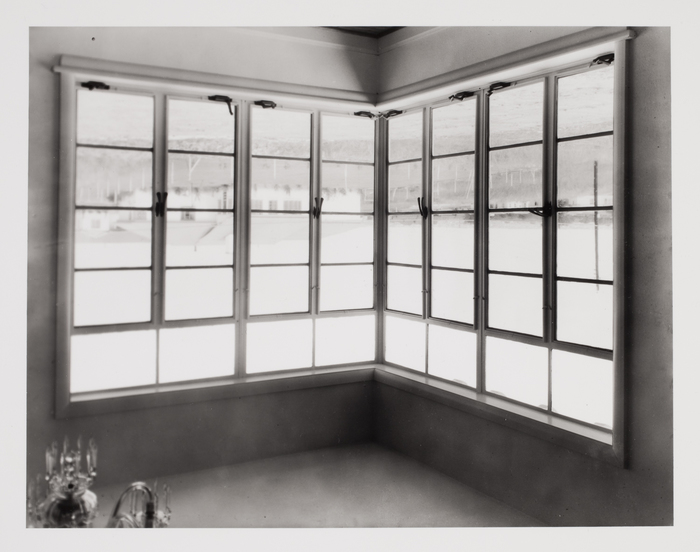
Their eyes meet. She thinks the woman is smiling, but she can’t quite tell. The woman’s face is covered by a mask, and so is her own. They pass each other, like they often do in the hour before curfew. She continues her walk. A latex glove lies by the roadside. The index and middle fingers are crossed, as if for luck or hiding a lie. She passes another person on the street, moving away to keep the required distance.
It makes her think of an occasion, months earlier, when she had come jogging down a mountain, sweaty, tired and slow. Two girls were coming the other way; they smiled as she approached. As they passed each other, the girl closest to her stretched out a hand for a high-five. Now, high-fiving a stranger seems unthinkable. It makes her feel a little wistful. The distance, the masks, the gloves, this strangest of times. Everyone hiding in their homes. She continues walking back to her apartment. She unlocks the door, and steps inside. Safe, perhaps, and lonely.
She takes off her shoes, and the facemask. She sheds her gym clothes in a pile on the floor and gets into her pyjamas. It’s virtually all she wears these days. She likes the simplicity and the comfort. The limited number of combinations of trousers, tops, and robes. She’s gotten used to seeing her plain face in the mirror, make-up free. Nothing to dress for.
There is a knock on the door. Unexpectedly, her neighbour. He has trouble with the shared internet, and asks for help. They’ve only greeted each other in the stairwell before, yet she invites him in. Something to alleviate the boredom. He takes off his facemask, seeing that she’s not wearing one. He clearly hasn’t shaved in weeks. He is the first person in days she’s spoken to face-to-face without a mask.
They have a drink on her balcony. She pretends they’re sitting on the terrace of a bar, like they might have in virus-free times. Instead they’re alone, inside her home. Two strangers in soft clothes and plain faces. The sun sets. The conversation stumbles, accelerates. They talk of fears, politics, childhoods, their intimacy growing in the darkness. The street is quiet. The buzz of cicadas and their own voices the only sounds cutting the air. Until they run out of things to say, and the cicadas alone save them from silence. Yet they refill their glasses, and move inside. She puts on music.
The night swirls around them, music filling the room. Or perhaps it’s them swirling, with the wine, the lockdown. Dancing, badly on her part, well on his. She has her arms wrapped around his neck. After weeks of restricted movements, working from home, sunset curfews. She’s longed for human touch.
He kisses her. Or perhaps they kiss each other. He pulls back, says, ‘I’m with someone.’ ‘No comment,’ she says. He smiles a little, and looks at her. Gets closer again. They keep dancing.
He untangles himself, decides to leave.
Days pass. She sees him in the courtyard. They greet each other, stay metres apart. Social distancing. They both pause, but don’t stop. She continues up the stairs to her apartment. Tired and slow.
Yet another day passes. She sees him outside again. This time they stop. They talk of virus numbers and the extended lockdown, then of music. She invites him in. Again they sit on her balcony, watching the light shift and sink. The conversation fills the air, occasionally stumbling. They finish a bottle of wine, swirling the last dregs in their glasses. He stands up, rests a hand on her shoulder. He steps away. She stands up too, walks him to the door. He leaves.
The weekend comes around. He knocks on her door, asks if she’s busy. She invites him in. He steps inside, eyes on the floor. He lingers in the hallway. She goes to fetch a bottle of wine and two glasses, prompts him to go out onto the balcony. She smiles slightly at his awkwardness, both pleased and puzzled by his presence. They drink, talk. She’s wearing a printed green robe. He says he likes the way it catches the colours of the trees around them.
Later on they get hungry, cook a simple meal together. Spaghetti carbonara. They are both in the kitchen, navigating the small space as if one of them might carry the virus. They finish the cooking and, with relief, carry their loaded plates back out. They sit down to eat, talking about art, ideas, and aspirations. Trying to find common ground, failing. Night falls and the cicadas come out.
She wants to reach out a limb and feel his skin but doesn’t. Instead she looks at him through the darkness, trying to meet his eyes. He holds her gaze, briefly, then looks away. He talks, she listens. They stay out on the balcony until the cicadas have gone quiet too. Eventually he says he should go home, go to bed. They stand up, she walks him to the door. He kisses her cheek, she hugs him briefly. She touches his wrist. They look at each other, a little too long. He leaves.
She goes to bed too. Wakes up, picks out a robe, puts it on, makes coffee. The dirty plates sit by the sink, reminding her of yesterday. She finishes her coffee, wants some air. She swaps her robe for a jacket, dons her facemask, leaves the building, and goes for a walk. She smiles when she passes the spot where the latex glove lies, now half-buried in the ground, its fingers still crossed as if for luck or for hiding a lie.
Alexandra Cronberg is a Nairobi based survey methodologist and occasional writer.